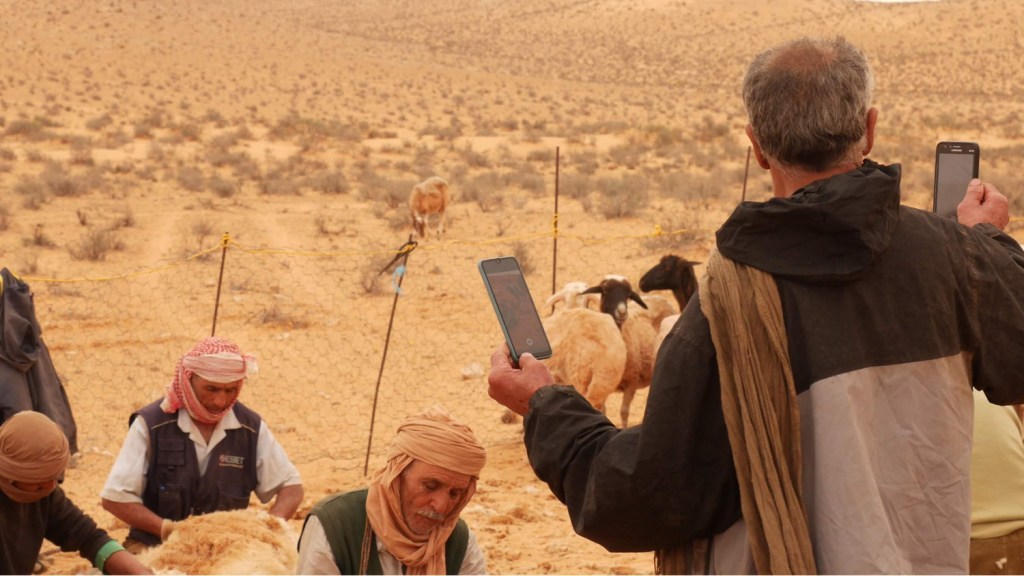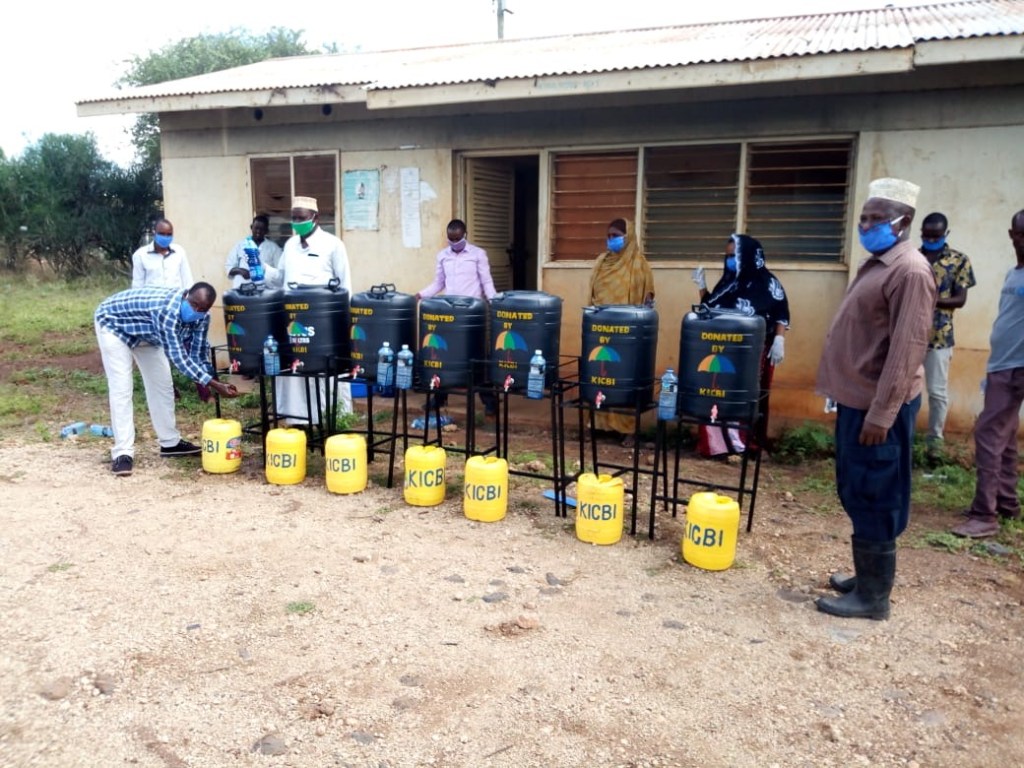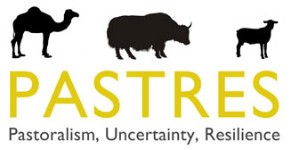by Ian Scoones
This is the tenth in a series of blog posts that bring together PASTRES work from 2018-2023 around a number of themes. In this post, we discuss the theme of pandemics.
To read through our archive on this theme, click on the link at the end of this post.
The COVID-19 pandemic occurred right in the middle of the PASTRES programme. It massively disrupted our research plans and influenced how we were able to engage in the field. It also provided an important opportunity to reflect on how uncertain events – the focus of our research explorations – were played out in pastoral settings, and whether there were any wider lessons we could draw.
The pandemic also prompted much methodological innovation, as movement restrictions both for pastoralists and researchers often prevented us meeting as we had before. Instead, the use of social media, remote use of photovoice and photography (resulting in a photography exhibition and book) were important ways of exploring the uncertainties of pandemic times through different media, as explored by Roopa Gogineni and Shibaji Bose in chapter 2 of our collective book.
Real-time reflections
Through our blog, PASTRES researchers reflected on the unfolding pandemic in real-time. For example, Linda Pappagallo discussed the liminal sense of being that the pandemic generated for researchers and pastoralists alike. Not quite knowing what would happen made concrete engagements challenging.

Elsewhere, Natasha Maru wrote about how lockdowns and movement restrictions affected pastoralists in Western India, while similar experiences were documented in Kenya by Rahma Hassan, in Romania by Cosmin Marius Ivascu, and in Jordan by Mathilde Gingembre and Anas Amarneh.
Tahira Mohamed highlighted how COVID-19, like other shocks, was being responded to through the ‘moral economy’, allowing for new forms of support and redistribution in the face of the pandemic. In Sardinia in Italy, Giulia Simula emphasised how small-scale producers like pastoralists kept the food system going, while longer supply chains and large-scale food production and trade were hit hard.
Michele Nori noted the challenges of market and rangeland access brought about by the control measures implemented following the spread of COVID-19 across the Mediterranean region. Finally, Linda Pappagallo highlighted the ‘liminal’ experience of both researchers and pastoralists in COVID times in Tunisia.
Pastoralists’ experiences of COVID-19 from across the PASTRES sites were compiled in a jointly written paper for the Journal of Peasant Studies, highlighting comparative insights. Reflecting on the wider lessons learned from pastoralists during the pandemic, Ian Scoones and Michele Nori identified four key themes in a PASTRES blog. The following sections are excerpts.
Multiple knowledges
In navigating uncertainties, pastoralists must engage with multiple sources of knowledge, triangulating between them.
This may involve engaging with expert, scientific knowledge, derived from, say, weather reports, or expert advice on pasture conditions or animal disease. It may involve referring to local, embedded traditional knowledges, consulting local experts such as traditional healers, prophets, and soothsayers — involving, for example, predictions around the seasons from signs in nature or messages from the spirit world.
It may involve informally shared updates and locally-rooted practical knowledge from friends, neighbours, relatives, and others – often via mobile phone, Facebook, or WhatsApp groups. These may include information on the state of grazing, the availability of water in a well, or the source and quality of forage, for example.

All these sources – formal, informal, real-time, and predictive – are combined, reflected upon, and, in turn, fed into action. No one source is relied upon alone. Simply relying on formal models and accredited expertise (‘the science’) is not enough, especially in the context of deep uncertainties.
Reducing everything to directive risk management is insufficient, and misleading, as uncertainty, ambiguity, and ignorance must be embraced. In these situations, people’s personal, experienced, and embodied uncertainties have to be addressed too. Accepting the existence of plural knowledges, even some that may be regarded as ‘unscientific’, is essential when navigating uncertainty and ignorance.
The experience of time
Very often, external interventions are constructed around the notion of an ‘event’ and a timeline around which a staged series of risk management measures are deployed.
This was the case in the pandemic, as it is during drought. The stages of the formal response in an unfolding pandemic imagines time in a linear, ordered, managed way. The result is the sequential deployment of interventions, managed by emergency teams, and ‘rapid response’ facilities.

But this isn’t the way pastoralists experience time. The ordered, hierarchical, administrative time of crisis and emergency management has to articulate with the more complex flows of lived-with time in everyday life.
A group of pastoralists managing highly variable grazing over far-flung territories with mobile herds experience time in quite a different way than preparedness planners and early warning system administrators. For pastoralists, futures are not just simply a linear extension of the present, as in the liberal modernist view, but are deeply intertwined with memories, experiences, and histories. These will differ across class, gender, age, and race, affecting how different people anticipate and respond. Everyday unfolding time is therefore a flow, not an event.
Reliable systems
Uncertainties provide major challenges to standardised systems that assume stability. Pastoralists must respond to high levels of variability, and the pandemic added to this. They must be ‘reliability professionals’ to ensure relatively stable supplies from highly variable inputs. They do not rely on an ‘expert decision system’ from outside, but they must build reliability through their own networks, among individuals, kin, age groups, and communities.
Communication and deliberation are central, facilitated these days by mobile communications. When a disaster strikes, knowledge, resources, and labour can be mobilised rapidly, and animals can be moved, fodder purchased, or water supplied.

This is what happened in the pandemic, and although imposed public health restrictions presented challenges, as our real-time reflections (see above) showed, pastoralists were well-equipped, being skilled at managing variability, to respond to the challenges of the pandemic. Largely left on their own, pastoralists had to innovate to create reliability on the move, making agile, sometimes difficult choices when facing variability.
Collective solidarities
If states cannot provide, businesses struggle, and experts are overwhelmed, then what can we turn to? This was a question frequently asked during the pandemic as systems struggled to cope.
The answer pastoralists had was that we must also rely on ourselves – on community action, and forms of solidarity and mutuality.
In pastoral areas, collective approaches to herd and flock management have always been vital in responding to variability. For example, a common tactic is to split a herd between young and vulnerable calves and milk cows who remain at home with additional fodder, and those that must migrate to distant pastures for the dry season. Mobility, flexibility, and modular approaches to managing livestock and territory are the watchwords.
These responses only work if they can mobilise labour, and this requires reciprocal relationships across kin, age groups, and communities. In tackling a pandemic, individual and collective actions must combine, public and private interests must converge, and centralised and local decision-making must interact.

In sum, the pandemic, while disruptive in so many ways, offered an important moment for reflection across the PASTRES project. Since our research aimed to learn ‘global lessons from the margins’, reflecting on the experience of the pandemic in pastoral areas highlighted several important themes – including the four discussed above – that have wider resonance and implications for thinking about pandemic preparedness and response more generally.
Explore our work on pandemics
Click on the button to explore the archive of PASTRES work on this theme.
